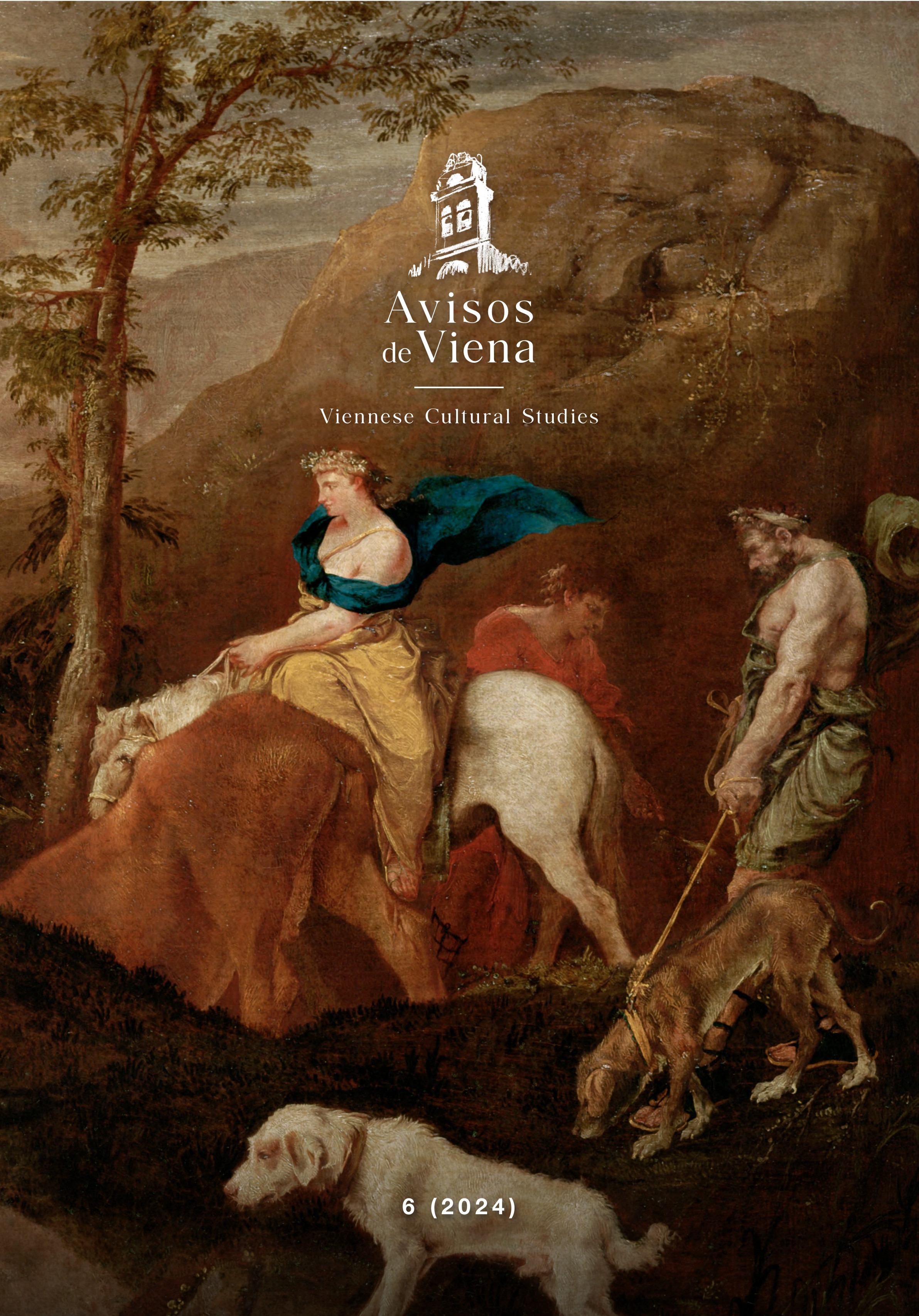Madre e hijo, sombra y luz
La muerte de Raquel en el nacimiento de Benjamín según reescrituras de la temprana Edad Moderna
DOI:
https://doi.org/10.25365/adv.2024.6.8528Keywords:
Raquel, Benjamín, hagiografías, Antiguo Testamento, Maternal mortality, Birth narrative, Early modern literature, Cultural symbolism, Maternal identityAbstract
A child comes into the world as his mother takes her last breath. Benjamin's first cry coincides with his mother Raquel's final words. Early modern poets and hagiographers draw upon this 'dual event' from Judeo-Christian tradition. Alonso Villegas, for instance, recounts it in his Flos Sanctorum. The birthing mother senses death looming over her. As she expires, she names her son, initially 'son of her pain', but Jacob rejects this somber name in favor of 'son of his right hand', signifying happiness. Benjamin's birth and Raquel's death epitomize maternal mortality, reflecting on birth as a moment of separation. Raquel's motherhood journey, marked by infertility struggles and finally fulfilled prayers, ends tragically with her death after giving birth to her second son. This study delves into the interplay of sorrow and love, loss and memory, and condemnation and divinization in Raquel's maternal experience.
References
Alighieri, D. (2014-2020). Divina Commedia (P. Pettrochi, Ed.). Edición digitalizada: https://digitaldante.columbia.edu/dante/divine-comedy
Atkinson, C. W. (2019). The oldest vocation: Christian motherhood in the Middle Ages. Ithaca: Cornell University Press.
Bach, A. (Ed.). (1999). Women in the Hebrew Bible: A reader. New York/London: Routledge.
Calderón de la Barca, P. (1997). La vida es sueño (E. Rodríguez Cuadros, Ed.). Madrid: Espasa-Calpe. Edición digitalizada: https://www.cervantesvirtual.com/obra/la-vida-es-sueno--0/
Calderón de la Barca, P. (2000). Sueños hay que verdad son. Alicante: Biblioteca Virtual Miguel de Cervantes. Edición digitalizada: https://www.cervantesvirtual.com/nd/ark:/59851/bmcdr2s3
Cambiaso, L. (1567-1585). Pietà. Art Institute Chicago, The Leonora Hall Gurley Memorial Collection. Fuente digitalizada: https://www.artic.edu/artworks/80918/pieta
Giménez-Rico, E. S. (2002). Dos palabras. Dos personajes: éxito y fracaso en la vida de Raquel y de Abraham. Sal terrae: Revista de teología pastoral, 645–656.
Holkham Misc. 48. (n.d.). Oxford, Bodleian Library MS. Fuente digitalizada: https://digital.bodleian.ox.ac.uk/objects/ab35e336-a471-4cf0-a9a7-592dbb8695d8/surfaces/caac02ae-cfd0-4a3b-b5b8-225be5f2d9c2/
Milton, J. (1631). An Epitaph on the Marchioness of Winchester. Versión digitalizada: https://milton.host.dartmouth.edu/reading_room/marchiones/text.shtml
Mira de Amescua, A. (2014). El más feliz cautiverio y los sueños de Josef. Alicante: Biblioteca Virtual Miguel de Cervantes. Edición digitalizada: https://www.cervantesvirtual.com/obra/el-mas-feliz-cautiverio-y-los-suenos-de-josef-0/
Morales, L. de. (1560-1570). La Virgen de los Dolores. Museo del Prado. Fuente digitalizada: https://www.museodelprado.es/coleccion/obra-de-arte/la-virgen-de-los-dolores/b8570932-2f0a-47d4-a294-3dde62406075
Mühlparzer, H. (2022). "To die and to be born–two actions like one": The analogy of birth and death in an allegorical play of Calderón. Avisos de Viena, 4, 24–28.
Nathan Adler, M. (1907). The Itinerary of Benjamin of Tudela: Critical text, translation and commentary. London: Oxford University Press.
Ritter, C. (2018). Rachel's Klage im antiken Judentum und frühen Christentum: Eine auslegungsgeschichtliche Studie. Leiden: Brill.
Santa Biblia (1602). Edición Reina-Valera Antigua. Edición digitalizada: https://www.biblegateway.com/versions/Reina-Valera-Antigua-RVA-Biblia
Schwartz, L. (2009). Milton and maternal mortality. Cambridge: Cambridge University Press.
Star Sered, S. (1995). Rachel’s Tomb: The development of a cult. Jewish Studies Quarterly, 2(2), 103–148.
Vega, L. de. (1999). Los trabajos de Jacob. Alicante: Biblioteca Virtual Miguel de Cervantes. Edición digitalizada: https://www.cervantesvirtual.com/obra/los-trabajos-de-jacob--0/
Villegas, A. de. (1589). Flos Sanctorum: Cuarta y última parte. Madrid: Pedro Madrigal.
Zucker, D. J., & Reiss, M. (2015). The Matriarchs of Genesis: Seven women, five views. Eugene, OR: Wipf & Stock.
Downloads
Published
How to Cite
Issue
Section
License
Copyright (c) 2024 Sabrina Grohsebner

This work is licensed under a Creative Commons Attribution 4.0 International License.
© Open Access, CC BY 4.0








